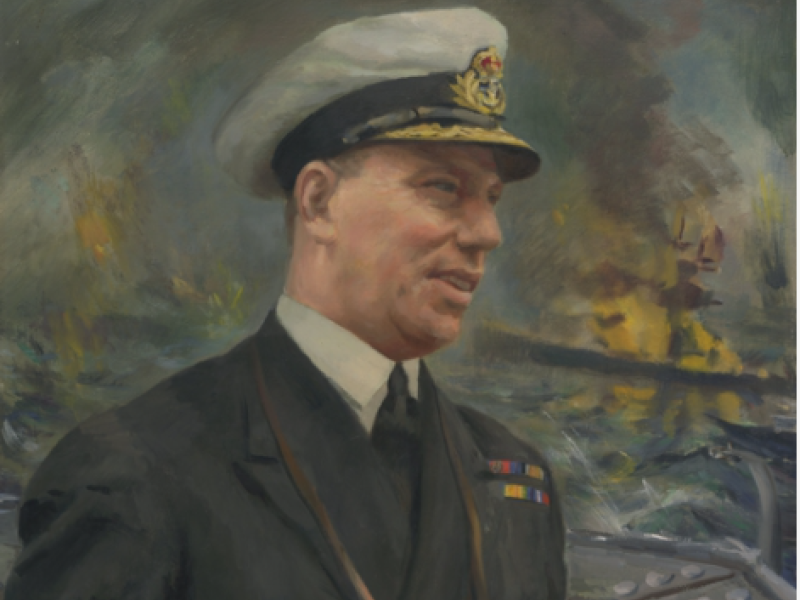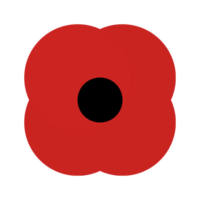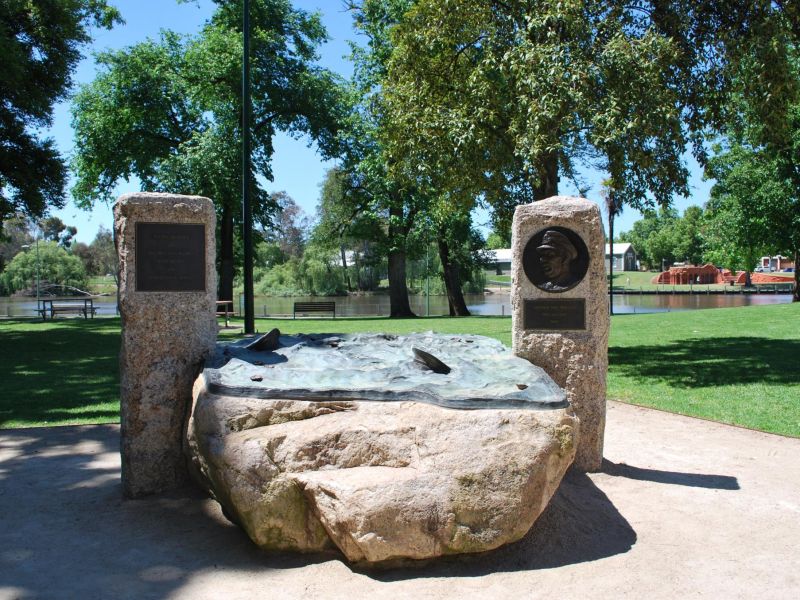Captain Hector MacDonald Laws Waller DSO & Bar RAN, HMAS Perth – Part 1
Hector “Hec” Waller was born on 4 April 1900 in Benalla, Victoria, the youngest of ten children of William and Helen Waller.
Despite growing up in the land-locked town, Waller dreamed of the sea. He entered the Royal Australian Naval College as a cadet midshipman on 31 December 1913 and graduated in 1917 as chief cadet captain, having won the King’s Medal for his “gentlemanly bearing, character, good influence among his fellows and officer-like qualities”.
Promoted to midshipman on New Year’s Day 1918, Waller was sent to Britain where he was posted to HMS Agincourt. At the end of the First World War, Waller was posted to HMAS Melbourne.
Waller stayed in the navy, accumulating postings and promotions.
On 7 April 1923 Waller married Nancy Bowes at the Methodist Church in Sydney. Two sons, Michael and John, followed.
Waller returned to Britain in 1924 for training as a signals officer; one his classmates was Lord Louis Mountbatten. Waller topped the advanced course. In 1926 he returned to Australia in charge of the Signals and Wireless Telegraphy School at Flinders Naval Depot in Victoria.
In July 1930, Waller was posted to HMAS Australia as squadron signals officer. By this stage, he had earned a strong reputation for his work with communications. Over the next two and half years, Waller spent time in sea-going and shore postings. He was promoted to commander in 1934 as the executive officer at the Royal Australian Naval College, before another six months in the UK in the British Naval Intelligence Division.
In December 1937, Waller was given his first sea command, the destroyer HMS Brazen. They were sent to monitor the Spanish Civil War, a duty which included protecting British merchant vessels and rescuing crews of sinking ships.
At the outbreak of the Second World War, he was given command of HMAS Stuart, an obsolete destroyer, and four others. After arriving in the Mediterranean theatre, these vessels, known as 19th Destroyer Division were nicknamed the “Scrap Iron Flotilla” by the Germans. The name was adopted as a badge of pride by the Australian sailors.
Waller was appointed to command the 10th Destroyer Flotilla, consisting of four modern British destroyers and the Scrap Iron Flotilla. The following month he was promoted to captain.
Waller’s reputation continued to grow along with his successes. In July 1940, HMAS Stuart was involved in the Battle of Calabria. Waller was awarded the Distinguished Service Order for his “courage, enterprise and devotion to duty”. In early 1941 Stuart provided gunfire support to Australian forces during the Battle of Bardia and assisted the Australian 6th Division during the capture of Tobruk.
When Prime Minister Robert Menzies visited Egypt in February, Admiral Sir Andrew Cunningham introduced him to Waller. He said of him, “now you’re going to meet one of the greatest captains who ever sailed the seas – his name is Waller.”
Michael Kelly, Historian, Military History Section

 Australian War Memorial
Australian War Memorial